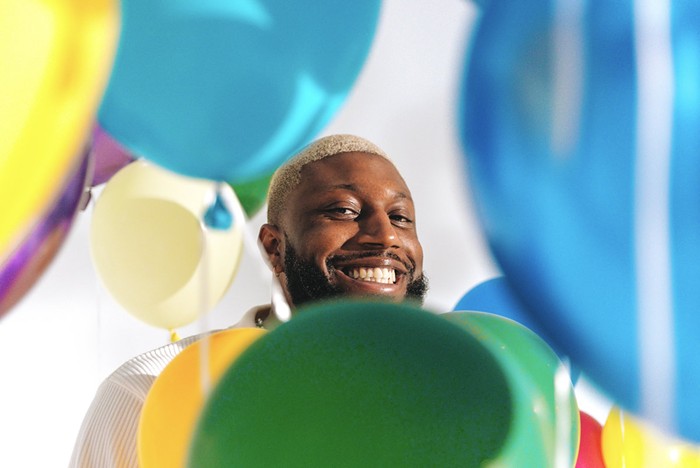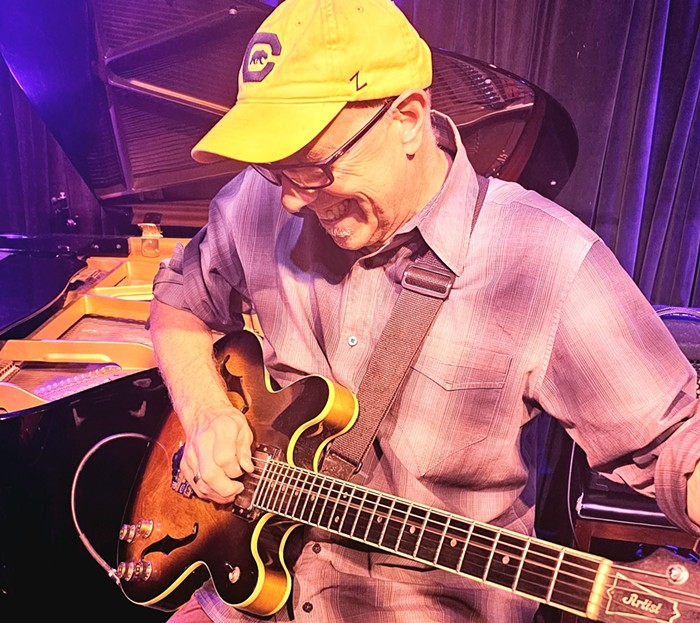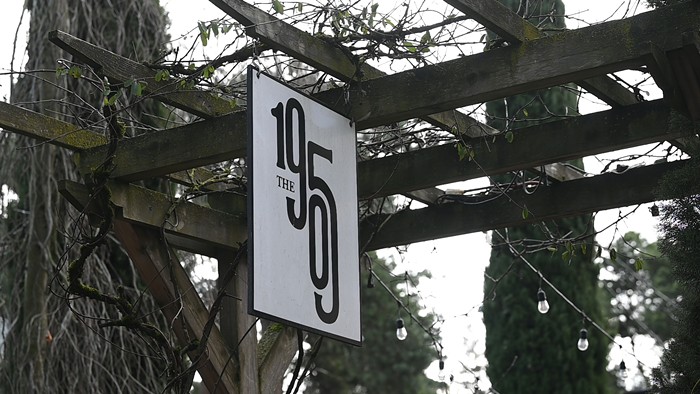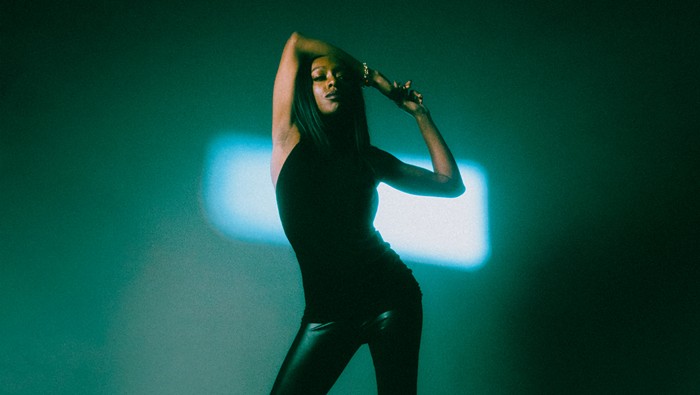A FEW YEARS AGO, John Wardle, the UK-based bassist/composer better known to the world as Jah Wobble, decided to take up painting. There was no grand desire to show his work in galleries or sell them to the highest bidder. He just wanted to try it out. He wound up with dozens of canvases featuring paintings of apartment towers and abstract geometric shapes.
“They were hypnotic to me, but very simple,” Wardle says, speaking from his home in London. “It’s much as I did with the bass. I would just sit down with a simple idea and try to make something happen. A lot of other musicians or artists might think that what I do is very primitive or limited or uninteresting. But I’m not bothered because there’s an energy and a genuineness about them.”
It’s as perfect a description of Wardle’s instrumental skills as you’re likely to hear. Since his earliest days playing alongside his friend John Lydon in legendary post-punk group Public Image Limited, Wardle’s bass playing has remained deceptively simple and crisply effective. And it’s a sound that’s immediately recognizable: Through hundreds of recording sessions and dozens of collaborations, that rich, booming bass tone, inspired by a longtime love of reggae and dub, bounds out of every song he plays on.
These days, Wardle has been using that particular sound in service of his band the Invaders of the Heart. The project has been in a constant state of flux since it began in 1990, including early versions that featured help from Can drummer Jaki Liebezeit, Senegalese vocalist Baaba Maal, Sinead O’Connor, and Cranberries frontwoman Dolores O’Riordan.
While those earlier permutations of the Invaders gravitated toward more ambient, downtempo sounds, the current lineup is pulling from fusion jazz and Afrobeat elements. On the group’s recently released LP Everything Is No Thing, “Mandala” sounds like a remixed take on vintage Herbie Hancock, while “Symmetrical/Asymmetrical” grooves as hard as Fela Kuti ever did. It’s an inspired collection that, according to Wardle, owes its energy and panache to the symbiotic relationship between himself and his younger bandmates.
“It’s down to them getting me going,” he says. “I’m 58, and Marc [Layton-Bennett, drummer] must be 42, George [King, keyboardist] is in his 30s, and [guitarist Martin] Chung is 35. Their enthusiasm really rubs off. They always have loads of gigs but they always tell me, ‘We put your shit first.’”
The other undersung aspect about Wardle is how his uncomplicated bass playing has allowed him to be one of the most versatile players around. He can fit his sound into most any context and has proven that again and again. That’s him bouncing through chill-out electronic artist the Orb’s “Blue Room”; adding a simmering tension to Passage to Hades, his collaboration with jazz saxophonist Evan Parker; and providing the foundation for “The Last Day of Our Acquaintance,” a centerpiece of O’Connor’s 1990 breakthrough album I Do Not Want What I Haven’t Got.
“I just seem to get on with people,” Wardle says of his ability to work with so many different types of musicians. “I’m just interested in people. And often I’d rather play with them than talk with them in a way. As long as you can keep time and respect the melody, and as long as you’ve got that feel, you can make it happen.”


















